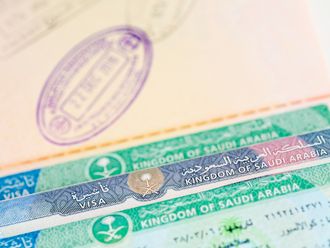Nicosia: An influx of Russian holidaymakers lifted Cyprus’s tourist arrivals to a seven-year high in 2012, offering rare good news to a recession-hit economy, official data showed on Monday.
Tourist arrivals to the Mediterranean island for January-December 2012 increased 3.0 per cent reaching 2.46 million visitors, up from 2.39 million in 2011.
The last time arrivals to the holiday destination surpassed this figure was in 2005 when 2.47 million people visited.
A 42 per cent jump in tourists from Russia contributed to the boost, reaching 223,861 visitors, while those from the island’s biggest holiday market, Britain, fell 6.0 per cent to 1.02 million.
There were fewer holidaymakers than in 2011 from mainstay countries Germany, down 8.5 per cent at 157,890, and Greece, down 4.1 per cent at 132,990.
Russia has cemented itself as the island’s second biggest tourist market behind Britain while Germany is third, followed by Greece and then Sweden.
The biggest recorded drop over the year was in visitors from the Czech Republic, who were 28.4 per cent fewer — 14,741, compared to 20,576 in 2011.
In December 2012, total arrivals decreased 16.2 per cent from 65,339 to 54,772 in the same month of 2011.
For January to September, income from tourism reached €1.61 billion ($2.14 billion) compared to €1.45 billion in 2011. Tourism revenue for 2012 will be announced on Tuesday.
Annual tourism revenue in Cyprus had risen to its highest level for three years in 2011, reaching €1.749 billion despite the financial crisis.
Holidaymakers to Cyprus hit a record high of 2.69 million in 2001, spending an unsurpassed €2.17 billion.
Income from tourism accounts for around 12 per cent of Cyprus’s GDP.
Cyprus tourism revenue in 2010 improved 3.8 per cent on 2009’s €1.49 billion, when the economy went into recession for the first time since 1974.
This year the economy is expected to shrink by an unprecedented 3.5 percent with the downturn continuing until 2015, the government forecasts.
Nicosia is still waiting for much-needed EU financial aid to help bail out its Greek-exposed banks and ailing economy.












